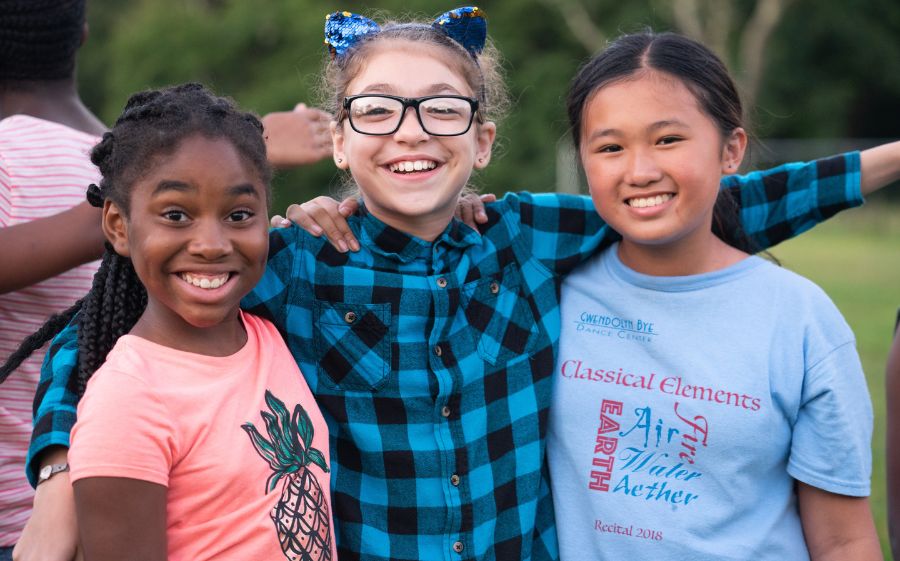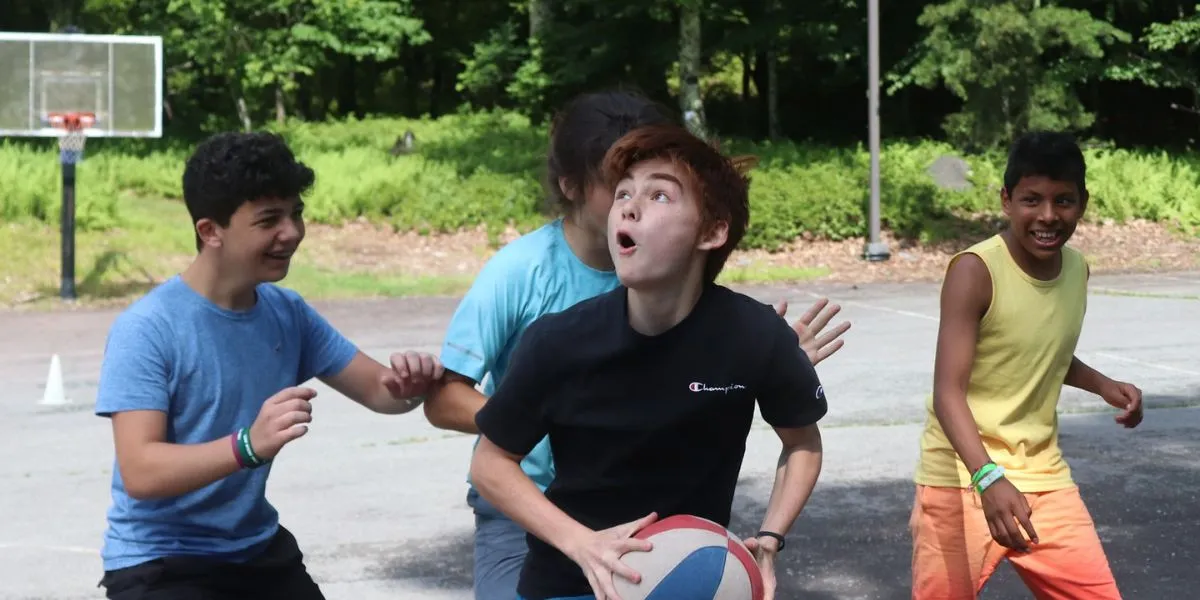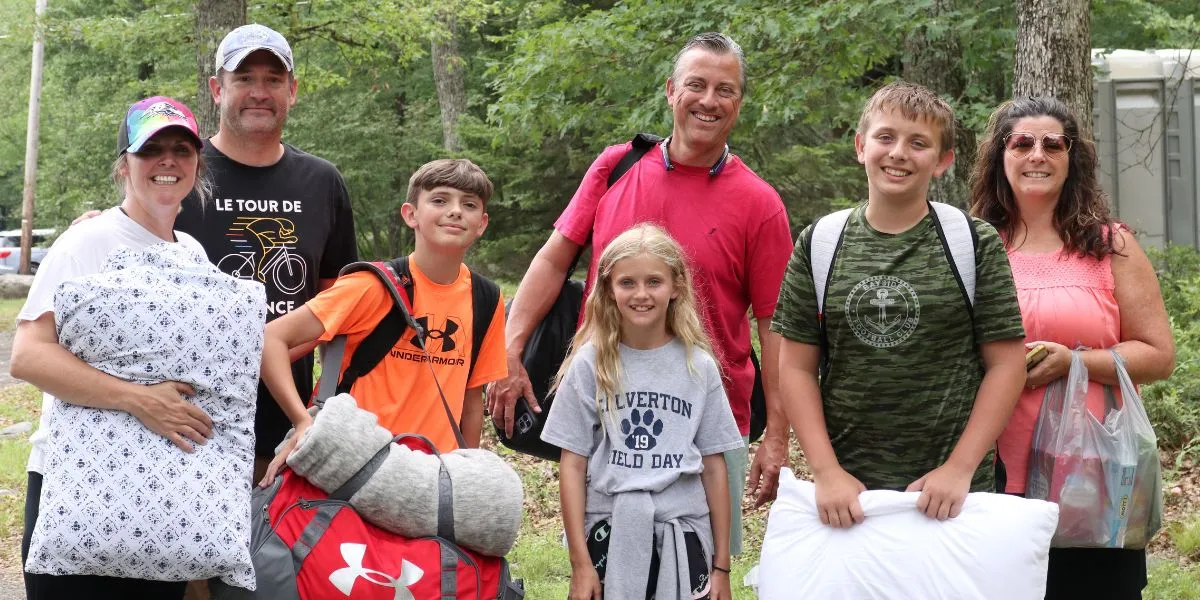
Published: 03/01/2025 - 8:00 AM
Sleepaway or overnight summer camps appeal to many preteens and teens, but the idea is nerve-wracking to many more. Nonetheless, they provide children with an essential opportunity to experience life beyond the comfort and confines of their homes. These camps allow kids to explore the great outdoors, make friends, and participate in fun and engaging activities.
Preparing your children well for overnight camp increases their chances of enjoying their time away from home and creating cherished memories. This guide discusses the benefits of children's overnight camp and how you can prepare your kids to ensure they have the time of their lives.
Benefits of Overnight Camp for Children
Sleepaway camp is often a well-curated outdoor experience that provides traditional camping activities like horseback riding, water sports, rock climbing, and hiking. These outdoor campers learn about their environment and how to conserve it.
Specialty overnight camps are available to engage kids in various activities, including sports, art, drama, academics and leadership, assisting campers as they hone their interests and sharpen their skills. These camp options aim to help kids grow and develop in numerous ways socially, mentally, academically, physically and emotionally.
Here's a breakdown of the top benefits of children's overnight camp:
- Fostering independence: Away from home, kids learn to be independent in a safe and encouraging environment. They get to make decisions independently, complete daily tasks and chores, manage their time, and take care of themselves and their belongings.
- Building social skills: Overnight camps allow kids to meet and interact with peers from different backgrounds and cultures. These interactions help them make healthy, lifelong friendships and sharpen other social skills like teamwork, effective communication, empathy and cooperation.
- Unplugging from technology: Today, children spend up to 7 hours daily entertaining themselves on screens, which negatively impacts their social, cognitive and emotional development. Sleepaway camps don't allow phones and other tech devices, encouraging kids to disconnect from technology and engage in more productive social, physical, and educational activities.
- Learning new skills: When choosing an overnight camp, pick one that aligns with your child's interests to encourage them to learn new skills or improve their current ones. These skills could include learning a new musical instrument, sharpening their acting or singing skills and improving their knowledge and understanding of STEM subjects.
How to Prepare for Overnight Camp
Preparing for children's overnight camp may be an extensive process that begins long before packing begins. Below, we share essential tips to prepare your kids for their time away from home.
1. Choose the Best Camp for Your Child
The choice of camp determines the type of experience they get and the skills they learn. So, you must be keen to choose a camp that aligns with your child's age, interests, skills and abilities. Your search for summer camps should start by asking for recommendations from friends and family. You can then move on to researching summer camps online to find options that offer what you're looking for.
A camp's website is a crucial resource that should reveal what to expect at a camp and whether it's a good fit for your child. When you find a camp you like, go beyond the homepage and explore other pages that share information about:
- The camp's history
- Their mission, vision and values
- Program offerings
- Their staff and hiring policies
- Reviews and testimonials
Going through camp photos and videos on their social media pages or virtual tours on their website is even more effective at psyching up your child for their time away from home.
2. Simulate Camp Experiences
The main idea behind overnight camp is to help your children gain independence and a sense of personal responsibility. One way to do that is to show them how to complete some of the tasks they'll be expected to do on their own when at camp. These include basic daily tasks such as making their beds, cleaning up after themselves, organizing their clothes, and keeping up with personal hygiene routines.
Create a chore schedule and daily routine that they maintain in preparation for camp. This can teach them to appreciate completing these tasks without being nudged by counselors. For first-time campers, it helps to send them away for a sleepover at a family member's or trusted friend's place for a night or two to give them an idea of what being away from home will be like.
3. Prepare Them for Homesickness
First-time overnight campers often have no idea what homesickness is. It helps to talk to them about the longing they'll have for home and the importance of not letting it take away from their experience. Highlight all the fun activities they'll experience at camp and how these are worth it when the wave of homesickness passes.
Some of the ways you can help your child combat homesickness when they're off at camp include:
- Sending them with a familiar and comforting stuffed animal, a printed family photo, or a picture of their pet.
- Encouraging them to talk to camp counselors or other staff members when homesickness hits.
- Teaching them positive affirmations and words to help them feel safe and confident during these times.
- Encouraging them to write or call home often to detail their experiences.
- Validating their emotions and helping them understand that homesickness is normal and they don't need to be ashamed or embarrassed.
- Giving them something to look forward to, such as a scheduled phone call or letter from you.
4. Curate a Comprehensive Overnight Camp Packing List
Packing for overnight camp is best when started early to prevent a last-minute rush. Shopping, labeling, and packing early also calms the nerves and reduces stress for both the parent and child. Here are some overnight summer camp packing list must-haves:
- Prescription medicine: Camps require children to present medical release forms and they make provisions for health and safety. Pack your child's prescription medication in its original packaging, along with dosage instructions.
- Linens and towels: Send your kids to camp with easily laundered bedding and towels appropriate for the camp's climate. An extra towel is a great idea, especially if the kids participate in water sports, like swimming or kayaking.
- Toiletries: Pack shower and grooming essentials, such as toothpaste, toothbrushes, soap, deodorant, moisturizer, comb, brush, and shower shoes. Always pack an extra toothbrush or two in case they lose one.
- Camp-appropriate clothing: The frequency of laundry days determines the number of outfits to pack for your child. Most camps provide a list of necessary gear, especially if they'll be engaging in water sports or messy activities.
Explore Our Summer Overnight Camps
Camp Speers YMCA is an overnight camp in Pennsylvania that aims to nurture children's curiosity, confidence and independence. We offer a traditional camp and many speciality programs, including Art Attack, Aqua Adventure, Midnight Madness, LGBTQIA+ and the new Ultimate Survivor camp.
Explore our summer overnight camps in Pennsylvania.

